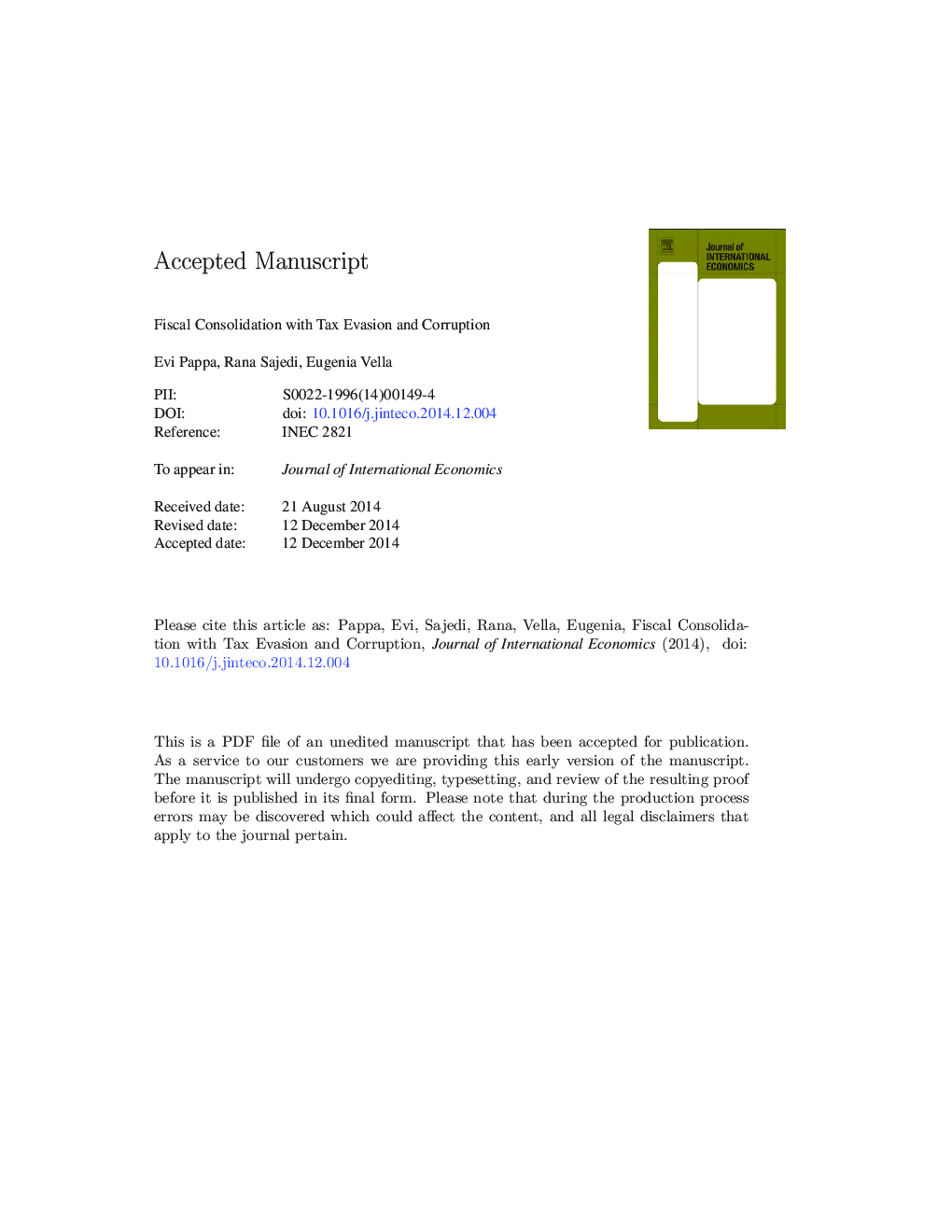| Article ID | Journal | Published Year | Pages | File Type |
|---|---|---|---|---|
| 10477321 | Journal of International Economics | 2015 | 44 Pages |
Abstract
Cross-country evidence highlights the importance of tax evasion and corruption in determining the size of fiscal multipliers. We introduce these two features in a New Keynesian model and revisit the effects of fiscal consolidations. VAR evidence for Italy suggests that spending cuts reduce tax evasion, while tax hikes increase it. In the model, spending cuts induce a reallocation of production towards the formal sector, thus reducing tax evasion. Tax hikes increase the incentives to produce in the less productive shadow sector, implying higher output and unemployment losses. Corruption further amplifies these losses by requiring larger hikes in taxes to reduce debt. We use the model to assess the recent fiscal consolidation plans in Greece, Italy, Portugal and Spain. Our results corroborate the evidence of increasing levels of tax evasion during these consolidations and point to significant output and welfare losses, which could be reduced substantially by combating tax evasion and corruption.
Related Topics
Social Sciences and Humanities
Economics, Econometrics and Finance
Economics and Econometrics
Authors
Evi Pappa, Rana Sajedi, Eugenia Vella,
